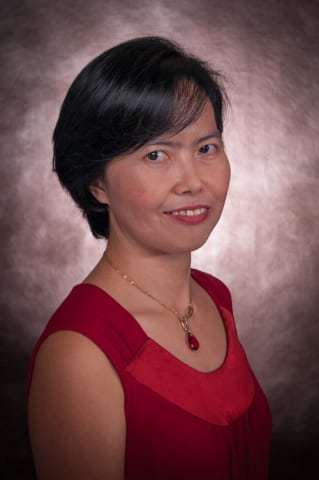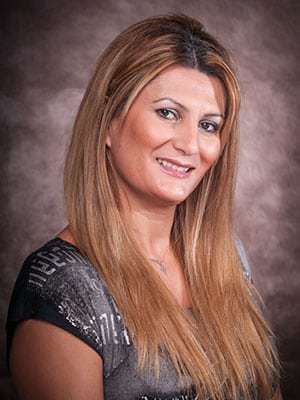Nursing
(BSc, 4 years)
Duration
4 years
Qualification Awarded
Nursing (BSc, 4 years)
Level of Qualification
Bachelor Degree (1st Cycle)
Language of Instruction
English and Greek
Mode of Study
Full-time or Part-time
Minimum ECTs Credits
240
Request Information
Nursing (BSc, 4 Years)
| Duration | 4 years |
| Qualification Awarded | Nursing (BSc, 4 years) |
| Level of Qualification | Bachelor Degree (1st Cycle) |
| Language of Instruction | English or Greek |
| Mode of Study | Full-time or Part-time |
| Minimum ECTS Credits | 240 |
Request Information
Profile of the Programme
Aims
The main educational aims of the programme are the following:
- To provide intellectually challenging courses which fulfill the personal development of students and are founded on scholarship and research.
- To enhance participation, guidance, support learning and teaching policies which fulfill the needs of a diverse student community at high standards of achievement.
- To develop in students a blend of knowledge, transferable skills and capabilities through instilling a curriculum and intellectual environment which strengthens their employability and provides the foundation for further study.
Objectives
The main objectives of this programme are:
- To provide students with an understanding of the key health care and nursing concepts and their application in a variety of sectors and organizations.
- To provide a conceptual framework of nursing as a management process which will enable the students to appreciate the roles and relationships of more specialist courses.
- To enable students to understand particular areas of contemporary concern in health care and nursing, including political and professional drivers and ethical social responsibility, communications, international aspects, the development of health care services, promoting inter-professional relationships and the links between health and consumer health beliefs and behaviours.
- To equip students with the skills, knowledge and personal competencies which would enable them to take nursing positions and to be able to contribute to the work of the organization, either state of private health care providers.
- To enable students to study areas of nursing within a flexible framework.
The programme has both an academic and a practical skills orientation. It focuses on studying and analyzing the latest trends and developments in the health care and nursing academia but at the same time it reflects the needs and requirements of the local providers and the national health care system.
Career Prospects
Nursing is a field which is characterized by continuous changes and challenges. It is among the most rapidly growing areas of health care within state and not-for-profit organizations, both nationally and internationally. Due to the highly competitive nature of the field and the rapidly evolving ‘character’ there is a requirement for competent graduates. Career opportunities at graduate level range from: front line nursing in care environments, management and education roles and business development. Graduates can find a job in a variety of sectors such as the: hospital services sector, professional services (ethics, health care insurance, legal, etc), non-profit organizations and tertiary education.
Access to Further Studies
Upon graduation, students have direct access to further studies, i.e. admission to a second cycle degree (Master’s programme). In addition, the Nursing programme has been approved as a directly transferrable European qualification and graduates can apply for registration with the Cyprus Nursing and Midwifery Association and work anywhere in Europe providing they meet the language requirements of that country.
Academic Admission
The minimum admission requirement to an undergraduate programme of study is a recognized High School Leaving Certificate (HSLC) or equivalent internationally recognized qualification(s). Students with a lower HSLC grade than 7.5/10 or 15/20 or equivalent depending on the grading system of the country issuing the HSLC are provided with extra academic guidance and monitoring during the first year of their studies.
In addition to the above, applicants must also satisfy the following requirements:
- Applicants to the B.Sc. in the Nursing programme who have not taken Biology and Chemistry in Secondary School and a grade in mathematics less than 15/20 will be required to register in preparatory-level courses in selected subjects and achieve a minimum GPA grade of 2.8/4.0 before given permission to take Major Requirement courses of the programme
English Language Proficiency
The list below provides the minimum English Language Requirements (ELR) for enrollment to the programme of study. Students who do not possess any of the qualifications or stipulated grades listed below and hold IELTS with 4.5 and above, are required to take UNIC’s NEPTON English Placement Test (with no charge) and will receive English Language support classes.
- TOEFL – 525 and above
- Computer-based TOEFL – 193 and above
- Internet-based TOEFL – 80 and above
- IELTS – 6 and above
- Cambridge Exams [First Certificate] – B and above
- Cambridge Exams [Proficiency Certificate – C and above
- GCSE English Language “O” Level – C and above
- Michigan Examination of Proficiency in English (CaMLA) – Pass
- Pearson PTE General – Level 3 and above
- KPG (The Greek Foreign Language Examinations for the State Certificate of Language Proficiency) – Level B2 and above
- Anglia – Level B2 and above
- IEB Advances Programme English – Pass
- Examination for the Certificate of Proficiency in English (ECPE) Michigan Language Assessment by: Cambridge Assessment English & University of Michigan – 650 average score for ALL skills and above
Course assessment usually comprises of a comprehensive final exam and continuous assessment. Continuous assessment can include amongst others, mid-terms, projects, and class participation.
Letter grades are calculated based on the weight of the final exam and the continuous assessment and the actual numerical marks obtained in these two assessment components. Based on the course grades the student’s semester grade point average (GPA) and cumulative point average (CPA) are calculated.
The student must complete 240 ECTS and all programme requirements.
A minimum cumulative grade point average (CPA) of 2.0 is required. Thus, although a ‘D-‘ is a PASS grade, in order to achieve a CPA of 2.0 an average grade of ‘C’ is required.
Additionally students must complete 2300 hours of practice to be able to graduate and apply for registration with the Cyprus Nursing and Midwifery Association.
By the end of the programme a graduate should be able to:
- Provide efficient, effective, individualized care, using appropriate assessment, diagnosis, planning, implementing and evaluating methods.
- Analyze the effective outcomes of practice using appropriate theory and research applied to practice.
- Practice within the scope of personal and professional competence and extent this scope as appropriate.
- Practice accountably and responsibly in their role as a professional and as role model for students and peers.
- Be adaptable and flexible within their practice and role as a professional in order that they will be confident and competent within a dynamic health care service.
- Use a problem solving approach in offering appropriate solutions of care.
- Use analytical skills to demonstrate the integration of knowledge and skills, gained through this process, to their practice and professional development.
- Work as a partner within the inter-professional team and be a key member of the team in liaising with other agencies.
- Communicate effectively with all individuals.
- Develop as a professional with a philosophy of lifelong learning.
| Course Code | Course Title | ECTS Credits |
|---|---|---|
| NURS-110 | Foundations of Nursing (Provision of Care) | 6 |
| NURS-120 | Care Across the Lifespan (Provision of Care) | 6 |
| NURS-210 | Psychosocial Context of Health (Provision of Care) | 9 |
| NURS-310 | Growing Old in a Caring Community (Provision of Care) | 9 |
| NURS-420 | Comparative Health Care Contexts (Provision of Care) | 10 |
| Course Code | Course Title | ECTS Credits |
|---|---|---|
| NURS-115 | Foundations of Nursing (Management of Care) | 6 |
| NURS-125 | Care Across the Lifespan (Management of Care) | 6 |
| NURS-215 | Psychosocial Context of Health (Management of Care) | 9 |
| NURS-315 | Growing Old in a Caring Community (Management of Care) | 9 |
| NURS-425 | Comparative Health Care Contexts (Management of Care) | 10 |
| Course Code | Course Title | ECTS Credits |
|---|---|---|
| NURS-220 | Perspectives of Secondary Care – Surgical | 9 |
| NURS-225 | Perspectives of Secondary Care – Medical | 9 |
| NURS-320 | Child Health Nursing | 9 |
| NURS-325 | Mental Health Nursing | 9 |
| NURS-410 | Chronic Care | 10 |
| NURS-415 | Acute Care | 10 |
| Course Code | Course Title | ECTS Credits |
|---|---|---|
| BIOL-110 | Elements of Biology | 6 |
| BIOL-240 | Elements of Biophysics | 6 |
| NURS-104 | Chemistry for Nursing | 3 |
| NURS-105 | Elements of Anatomy and Physiology | 6 |
| NURS-209 | Microbiology | 6 |
| NURS-216 | Pharmacology for Nursing | 5 |
| NURS-230 | Pathophysiology | 6 |
| NUTR-100 | Introduction to Human Nutrition | 5 |
| Course Code | Course Title | ECTS Credits |
|---|---|---|
| COMP-150N | Microcomputer Applications | 2 |
| MATH-221N | Statistics I | 6 |
| NURS-121 | Ethics for Nursing | 3 |
| NURS-122 | Sociology for Nursing | 3 |
| NURS-123 | Psychology for Nursing | 3 |
| NURS-330 | Seminars in Nursing | 4 |
| NURS-430 | Research Project | 10 |
| NURS-450 | Clinical Practice | 0 |
| Course Code | Course Title | ECTS Credits |
|---|---|---|
| ESP-100N | English for Nurses I | 6 |
| ESP-110N | English for Nurses II | 6 |
| Course Code | Course Title | ECTS Credits |
|---|---|---|
| NURS-110G | Βασική Νοσηλευτική (Παροχή Φροντίδας) | 6 |
| NURS-120G | Δια Βίου Φροντίδα (Παροχή Φροντίδας) | 6 |
| NURS-210G | Ψυχοκοινωνική Προσέγγιση Υγείας (Παροχή Φροντίδας) | 9 |
| NURS-310G | Φροντίδα Ηλικιωμένων (Παροχή Φροντίδας) | 9 |
| NURS-420G | Εξειδικευμένες Μονάδες Φροντίδας (Παροχή Φροντίδας) | 10 |
| Course Code | Course Title | ECTS Credits |
|---|---|---|
| NURS-115G | Βασική Νοσηλευτική (Διαχείριση Φροντίδας) | 6 |
| NURS-125G | Δια Βίου Φροντίδα (Διαχείριση Φροντίδας) | 6 |
| NURS-215G | Ψυχοκοινωνική Προσέγγιση Υγείας (Διαχείριση Φροντίδας) | 9 |
| NURS-315G | Φροντίδα Ηλικιωμένων (Διαχείριση Φροντίδας) | 9 |
| NURS-425G | Εξειδικευμένες Μονάδες Φροντίδας (Διαχείριση Φροντίδας) | 10 |
| Course Code | Course Title | ECTS Credits |
|---|---|---|
| NURS-220G | Δευτεροβάθμια Φροντίδα – Χειρουργική Νοσηλευτική | 9 |
| NURS-225G | Δευτεροβάθμια Φροντίδα – Παθολογική Νοσηλευτική | 9 |
| NURS-320G | Παιδιατρική Νοσηλευτική | 9 |
| NURS-325G | Νοσηλευτική Ψυχικής Υγείας | 9 |
| NURS-410G | Φροντίδα Χρονίως Πασχόντων | 10 |
| NURS-415G | Επείγουσα Νοσηλευτική Φροντίδα | 10 |
| Course Code | Course Title | ECTS Credits |
|---|---|---|
| BIOL-110G | Στοιχεία Βιολογίας | 6 |
| BIOL-240G | Στοιχεία Βιοφυσικής | 6 |
| NURS-104G | Χημεία | 3 |
| NURS-105G | Στοιχεία Ανατομίας και Φυσιολογίας | 6 |
| NURS-209G | Μικροβιολογία | 6 |
| NURS-216G | Φαρμακολογία | 5 |
| NURS-230G | Παθολογική Φυσιολογία | 6 |
| NUTR-100G | Εισαγωγή στη Διατροφολογία | 5 |
| Course Code | Course Title | ECTS Credits |
|---|---|---|
| COMP-150NG | Εφαρμογές Μικροϋπολογιστών | 2 |
| MATH-221NG | Στατιστική | 6 |
| NURS-121G | Ηθική και Δεοντολογία στη Νοσηλευτική | 3 |
| NURS-122G | Κοινωνιολογία στη Νοσηλευτική | 3 |
| NURS-123G | Ψυχολογία στη Νοσηλευτική | 3 |
| NURS-330G | Σεμινάρια Νοσηλευτικής | 4 |
| NURS-430G | Πτυχιακή Εργασία | 10 |
| NURS-450G | Κλινική Πρακτική Άσκηση | 0 |
| Course Code | Course Title | ECTS Credits |
|---|---|---|
| ESP-100NG | Αγγλικά για Νοσηλευτές I | 6 |
| ESP-110NG | Αγγλικά για Νοσηλευτές IΙ | 6 |
| Course Code | Course Title | ECTS Credits |
|---|---|---|
| ANTH-105A | Πολιτισμική Ανθρωπολογία | 6 |
| NURS-440G | Διαπολιτισμική Νοσηλευτική | 6 |
| PSY-270G | Ψυχολογία της Υγείας | 6 |
| UNIC-100 | University Experience | 6 |
| Semester 1 | ||||
| Α/Α | Course Name | Course Code | Number of ECTS | Lecturer |
| 1. | Foundation in Nursing I | NURS-110 | 6 | Dr Monica Nikitara- Lecturer |
| 2. | Foundation in Nursing II | NURS-115 | 6 | Ms Savvoula Ghobrial- Associate Lecturer |
| 3. | Elements of Biology | BIOL -110 | 6 | Dr Neophytos Stylianou- Adjunct Faculty |
| 4. | Elements of Anatomy and Physiology | NURS-105 | 6 | Dr Edna Yamasaki- Professor |
| 5. | Greek Language and Culture I* | GREK-101N | 6 | Ms Erasmia Dede- Adjunct Faculty |
| Semester 2 | ||||
| Α/Α | Course Name | Course Code | Number of ECTS | Lecturer |
| 6. | Care Across Lifespan I | NURS-120 | 6 | Dr Monica Nikitara- Lecturer |
| 7. | Care Across Lifespan II | NURS-125 | 6 | Mr Evangelos Latzourakis- Associate Lecturer |
| 8. | Greek Language and Culture II* | GREK-102 | 6 | Ms Erasmia Dede- Adjunct Faculty |
| 9. | Chemistry | NURS-104 | 3 | Dr Marios Stylianou- Assistant Professor |
| 10 | Pathophysiology | NURS-230 | 6 | Dr Edna Yamasaki- Professor |
| 11 | Ethics in Nursing | NURS-121 | 3 | Ms Savvoula Ghobrial- Associate Lecturer |
| Semester 3 | ||||
| Α/Α | Course Name | Course Code | Number of ECTS | Lecturer |
| 12 | Community and Public Health Nursing I | NURS-210 | 9 | Dr Monica Nikitara- Lecturer |
| 13 | Community and Public Health Nursing II | NURS-215 | 9 | Mr Evangelos Latzourakis- Associate Lecturer |
| 14 | Pharmacology in Nursing | NURS-216 | 5 | Dr. Edna Yamasaki- Professor |
| 15 | Information Technologies in Health | COMP-150N | 2 | Ms Cynthia Efremoglou- Adjunct Faculty |
| 16 | Introduction to Human Nutrition | NUTR – 100 | 5 | Dr George Loukaides- Adjunct Faculty |
| Semester 4 | ||||
| Α/Α | Course Name | Course Code | Number of ECTS | Lecturer |
| 17 | Surgical Nursing | NURS -220 | 9 | Mr Evangelos Latzourakis- Associate Lecturer |
| 18 | Medical Nursing | NURS-225 | 9 | Dr Monica Nikitara- Lecturer |
| 19 | Microbiology | NURS -209 | 6 | Dr Joseph Moutiris- – Adjunct Faculty |
| 20 | Elements of Biophysics | BIOL-240 | 6 | Dr Marios Nestoros- Associate Professor |
| Semester 5 | ||||
| Α/Α | Course Name | Course Code | Number of ECTS | Lecturer |
| 21 | Growing Old in a Caring Community I | NURS-310 | 9 | Dr Monica Nikitara- Lecturer |
| 22 | Growing Old in a Caring Community II | NURS-315 | 9 | Mr Evangelos Latzourakis- Associate Lecturer |
| 23 | Sociology for Nursing | NURS-122 | 3 | Dr Marios Sarris- Assistant Professor |
| 24 | Psychology for Nursing | NURS-123 | 3 | Dr Maria Georgiou- Adjunct Faculty |
| 25 | English for Nursing | ESP-100N | 6 | Ms Katia Pelides- Associate Lecturer |
| Semester 6 | ||||
| Α/Α | Course Name | Course Code | Number of ECTS | Lecturer |
| 26 | Child Health Nursing | NURS-320 | 9 | Ms Savvoula Ghobrial- Associate Lecturer |
| 27 | Mental Health Nursing | NURS-325 | 9 | Mr Vasilis Chrysanthou- Adjunct Faculty |
| 28 | English for Nursing | ESP-110N | 6 | Ms Katia Pelides- Associate Lecturer |
| 29 | Statistics | MATH-221N | 6 | Dr Stavros Pouloukas- Associate Professor |
| Semester 7 | ||||
| Α/Α | Course Name | Course Code | Number of ECTS | Lecturer |
| 30 | Chronic Care | NURS-410 | 10 | Dr Monica Nikitara- Lecturer |
| 31 | Acute Care | NURS-415 | 10 | Ms Savvoula Ghobrial- Associate Lecturer |
| 32 | Research Project** | NURS-430 | 10 | Dr Monica Nikitara- Lecturer |
| Semester 8 | ||||
| Α/Α | Course Name | Course Code | Number of ECTS | Lecturer |
| 33 | Comparative Health Care Contexts I | NURS-420 | 10 | Mr Evangelos Latzourakis- Associate Lecturer |
| 34 | Comparative Health Care Contexts II | NURS-425 | 10 | Ms Savvoula Ghobrial- Associate Lecturer |
| 35 | Seminars in Nursing | NURS-330 | 4 | Dr Monica Nikitara- Lecturer |
| 36 | Transcultural Nursing | NURS-440 | 6 | Ms Savvoula Ghobrial- Associate Lecturer |
** = Courses offered over two semesters
| Semester 1 | ||||
| Α/Α | Όνομα Μαθήματος | Κωδικός Μαθήματος | Αριθμός Πιστωτικών Μονάδων (ECTS) | Lecturer |
| 1. | Εισαγωγή στη Νοσηλευτική Ι | NURS-110 | 6 | Δρ Μόνικα Νικηταρά – Λέκτορας |
| 2. | Εισαγωγή στη Νοσηλευτική ΙΙ | NURS-115 | 6 | Σαββούλα Γκομπριαλ – Αν. Λέκτορας |
| 3. | Βιολογία | BIOL -110 | 6 | Δρ Νεόφυτος Στυλιανού – Ειδικό Διδακτικό Προσωπικό |
| 4. | Ανατομία & Φυσιολογία | NURS-105 | 6 | Δρ. Ζωή Ρούπα – Καθηγήτρια |
| 5. | Χημεία στη Νοσηλευτική | NURS-104 | 6 | Δρ Μάριος Στυλιανού- Αν. Καθηγητής |
| 6. | Ηθική και Νομοθεσία στη Νοσηλευτική | NURS-121 | 6 | Δρ Μαρία Νούλα- Αν. Καθηγήτρια |
| Semester 2 | ||||
| Α/Α | Όνομα Μαθήματος | Κωδικός Μαθήματος | Αριθμός Πιστωτικών Μονάδων (ECTS) | Lecturer |
| 7. | Δια Βίου Φροντίδα Ι | NURS-120 | 6 | Δρ Μαρία Νούλα – Αν. Καθηγήτρια |
| 8. | Δια Βίου Φροντίδα ΙΙ | NURS-125 | 6 | Ευάγγελος Λατζουράκης – Αν. Λέκτορας |
| 9. | Αγγλικά για Νοσηλευτές I | ESP-100Ν | 6 | Κάτια Πηλείδου – Αν. Λέκτορας |
| 10. | Παθοφυσιολογία | NURS-230 | 6 | Δρ Ζωή Ρούπα – Καθηγήτρια |
| 11. | Κοινωνιολογία στη Νοσηλευτική | NURS-122 | 3 | Δρ Μάριος Σαρρής – Αν. Καθηγητής |
| 12. | Ψυχολογία στη Νοσηλευτική | NURS-123 | 3 | Δρ Μαρία Γεωργίου- Ειδικό Διδακτικό Προσωπικό |
| Semester 3 | ||||
| Α/Α | Όνομα Μαθήματος | Κωδικός Μαθήματος | Αριθμός Πιστωτικών Μονάδων (ECTS) | Lecturer |
| 13. | Κοινοτική Νοσηλευτική – Δημόσια Υγεία Ι | NURS-210 | 9 | Δρ Μαρία Νούλα – Αν. Καθηγήτρια |
| 14. | Κοινοτική Νοσηλευτική – Δημόσια Υγεία ΙΙ | NURS-215 | 9 | Ευάγγελος Λατζουράκης – Αν. Λέκτορας |
| 15. | Φαρμακολογία | NURS-216 | 5 | Δρ Ιωσήφ Μουτήρης – Ειδικό Διδακτικό Προσωπικό |
| 16. | Πληροφορική της Υγείας | COMP-150N | 2 | Σύνθια Εφραίμογλου – Ειδικό Διδακτικό Προσωπικό |
| 17. | Εισαγωγή στη Διατροφολογία – Διαιτολογία | NUTR – 100 | 5 | Δρ Γιώργος ΛουκαΪδης – Ειδικό Διδακτικό Προσωπικό |
| Semester 4 | ||||
| Α/Α | Όνομα Μαθήματος | Κωδικός Μαθήματος | Αριθμός Πιστωτικών Μονάδων (ECTS) | Lecturer |
| 18. | Χειρουργική Νοσηλευτική | NURS -220 | 9 | Ευάγγελος Λατζουράκης- Αν. Λέκτορας |
| 19. | Παθολογική Νοσηλευτική | NURS-225 | 9 | Δρ. Μόνικα Νικηταρά- Λέκτορας |
| 20. | Μικροβιολογία | NURS -209 | 6 | Δρ. Ζωή Ρούπα – Καθηγήτρια |
| 21. | Βιοφυσική | BIOL-240 | 6 | Δρ. Μάριος Νέστορος- Αν. Καθηγητής |
| Semester 5 | ||||
| Α/Α | Όνομα Μαθήματος | Κωδικός Μαθήματος | Αριθμός Πιστωτικών Μονάδων (ECTS) | Lecturer |
| 22. | Φροντίδα Ηλικιωμένων Ι | NURS-310 | 9 | Δρ Μόνικα Νικηταρά – Λέκτορας |
| 23. | Φροντίδα Ηλικιωμένων ΙΙ | NURS-315 | 9 | Ευάγγελος Λατζουράκης – Αν. Λέκτορας |
| 24. | Ψυχολογία της Υγείας | PSY-270 | 3 | Δρ Μαρία Γεωργίου – Ειδικό Διδακτικό Προσωπικό |
| 25. | Αγγλικά για Νοσηλευτές II | ESP-100N | 6 | Κάτια Πηλείδου – Αν. Λέκτορας |
| Semester 6 | ||||
| Α/Α | Όνομα Μαθήματος | Κωδικός Μαθήματος | Αριθμός Πιστωτικών Μονάδων (ECTS) | Lecturer |
| 26. | Παιδιατρική Νοσηλευτική | NURS-320 | 9 | Άννα Χρυσάφη – Αν. Λέκτορας |
| 27. | Νοσηλευτική Ψυχικής Υγείας | NURS-325 | 9 | Δρ Γιώργος Καραγιάννης – Ειδικό Διδακτικό Προσωπικό |
| 28. | Πολιτισμική Ανθρωπολογία | ANTH-105 | 6 | Δρ Μάριος Σαρρής – Αν. Καθηγητής |
| 29. | Στατιστική | MATH-221N | 6 | Δρ Σταύρος Πουλούκας – Αν. Καθηγητής |
| Semester 7 | ||||
| Α/Α | Όνομα Μαθήματος | Κωδικός Μαθήματος | Αριθμός Πιστωτικών Μονάδων (ECTS) | Lecturer |
| 30. | Φροντίδα Χρονίως Πασχόντων | NURS-410 | 10 | Δρ Μόνικα Νικηταρά – Λέκτορας |
| 31. | Επείγουσα Νοσηλευτική Φροντίδα | NURS-415 | 10 | Σαββούλα Γκομπριαλ – Αν. Λέκτορας |
| 32. | Μεθοδολογία Έρευνας – Πτυχιακή Εργασία** | NURS-430 | 10 | Δρ Μαρία Νούλα – Αν. Καθηγήτρια |
| Semester 8 | ||||
| Α/Α | Όνομα Μαθήματος | Κωδικός Μαθήματος | Αριθμός Πιστωτικών Μονάδων (ECTS) | Lecturer |
| 33. | Εξειδικευμένες Μονάδες Φροντίδας Ι | NURS-420 | 10 | Δρ Μόνικα Νικηταρά – Λέκτορας |
| 34. | Εξειδικευμένες Μονάδες Φροντίδας ΙΙ | NURS-425 | 10 | Σαββούλα Γκομπριαλ – Αν. Λέκτορας |
| 35. | Σεμινάρια Τελειοφοίτων Νοσηλευτικής | NURS-330 | 4 | Σαββούλα Γκομπριαλ – Αν. Λέκτορας |
| 36. | Διαπολιτισμική Νοσηλευτική | NURS-440 | 6 | Σαββούλα Γκομπριαλ – Αν. Λέκτορας |







